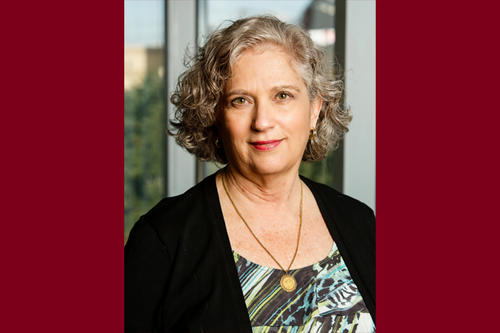
Melanoma is now the second most common cancer diagnosed among young, non-Hispanic white females, ages 20–29 and it has been increasing steadily in the United States. Accountable for more than 75 percent of all skin cancer deaths, melanoma is also one cancer that is largely preventable.
Ultraviolet (UV) rays from the sun or tanning beds cause melanoma and damage to skin cells can start at an early age. It’s vital that good protection practices begin when children are young.
University of Minnesota School of Public Health expert DeAnn Lazovich, whose research led to Minnesota passing a law in 2014 prohibiting minors under the age of 18 from indoor tanning, gives advice on how people can prevent melanoma in themselves and those under their care.
DeAnn Lazovich, Ph.D.
“Some risk factors that you inherit, like green or blue eyes, fair skin, and red or blond hair, increase your risk of melanoma. But of the modifiable risk factors, we’re really talking about exposure to ultraviolet radiation. Tanning beds should never be used. And avoid sun exposure that can lead to sunburns.
“If you do need to spend time in the sun:
- Seek shade whenever possible.
- Wear protective clothing, meaning shirts with long sleeves and pants with long legs.
- Wear a hat that shades your face and neck.
- Always use sunscreen in combination with these other skin protection strategies, not as a stand-alone strategy.
- Use sunscreens with an SPF of 30 or higher and apply about a shot glass full to exposed skin to get full protection. Remember to reapply every two hours, or more frequently if sweating or swimming.
- Avoid spray sunscreens because it is not possible to know how much sunscreen is being applied.”
DeAnn Lazovich, Ph.D., is an associate professor in the University of Minnesota School of Public Health and a member of the Masonic Cancer Center. Her research focuses on cancer epidemiology, prevention, and cancer control, with specific expertise in skin cancer prevention, risk factors for melanoma and quality of life among cancer survivors.
Contact information:
DeAnn Lazovich
[email protected]
612-626-9099 (office)
About University of Minnesota experts:
University of Minnesota experts can provide commentary, insights and opinions on various news topics. See selected experts on UMN’s Experts Guide or inquire about additional experts via email at [email protected].
Media note:
The University of Minnesota Twin Cities is equipped with a VideoLink ReadyCam® studio for live or taped HD television interviews with our experts. To arrange an interview, contact the University News Service at (612) 624-5551 or [email protected].
- Categories:
- Health




